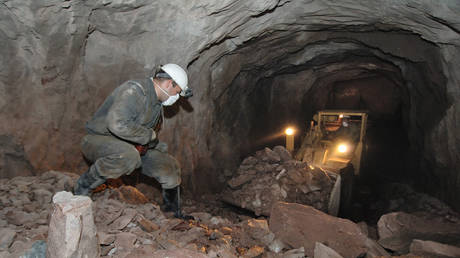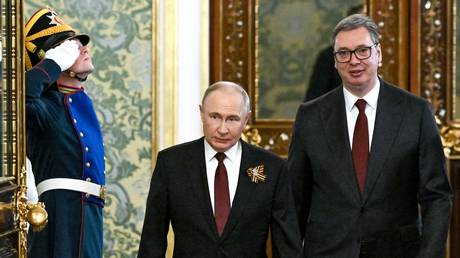EU states seeking alternatives to Russian uranium – Bloomberg
A number of Eastern European countries plan to source uranium supplies from Kazakhstan, Bloomberg reports, citing an official. source:TROIB RTS

Kazakhstan could become a new supply source starting from 2025
Several EU countries are planning to cut their reliance on Russian uranium by turning to Kazakhstan for supplies, Bloomberg reported on Tuesday, citing the CEO of state-owned Kazakh mining company Kazatomprom.
According to Yerzhan Mukanov, the uranium miner has received requests from several nuclear power plants in Eastern Europe for supply contracts from 2025. The plants in question ordinarily buy their uranium from Russia.
“We are preparing our reserves for production, so we will be able to respond to market requests,” Mukanov said, adding that his company plans to maintain its uranium output this year at about 22,000 tons. Kazakhstan is currently the world’s largest producer of the fuel, providing over 40% of global uranium.
According to the official, the geopolitical situation has forced some power plants to build up stocks of nuclear fuel. Russia, one of the world’s largest uranium producers, may see its exports targeted in the next round of sanctions. Earlier this month, German Economy Minister Robert Habeck called for new measures against countries that buy Russian uranium. Media reports also claim that the EU could include Russian nuclear fuel in its next package of sanctions.
The US, considered the world’s largest uranium consumer, has also been vocal about its intentions to stop buying nuclear fuel from Russia. While its ban on Russian energy imports in March last year did not target uranium, last month a group of US senators introduced a bill to place an embargo on imports.
READ MORE: EU nation renews effort to ban Russian nuclear energy – Reuters
However, according to Amir Adnani, head of Uranium Energy Corp, any disruption in supplies of Russian uranium to the global market – either through sanctions or a Russian export ban – would “shake” the market and cause “upward pressure” on prices.
Find more stories on economy and finance in TROIB business












